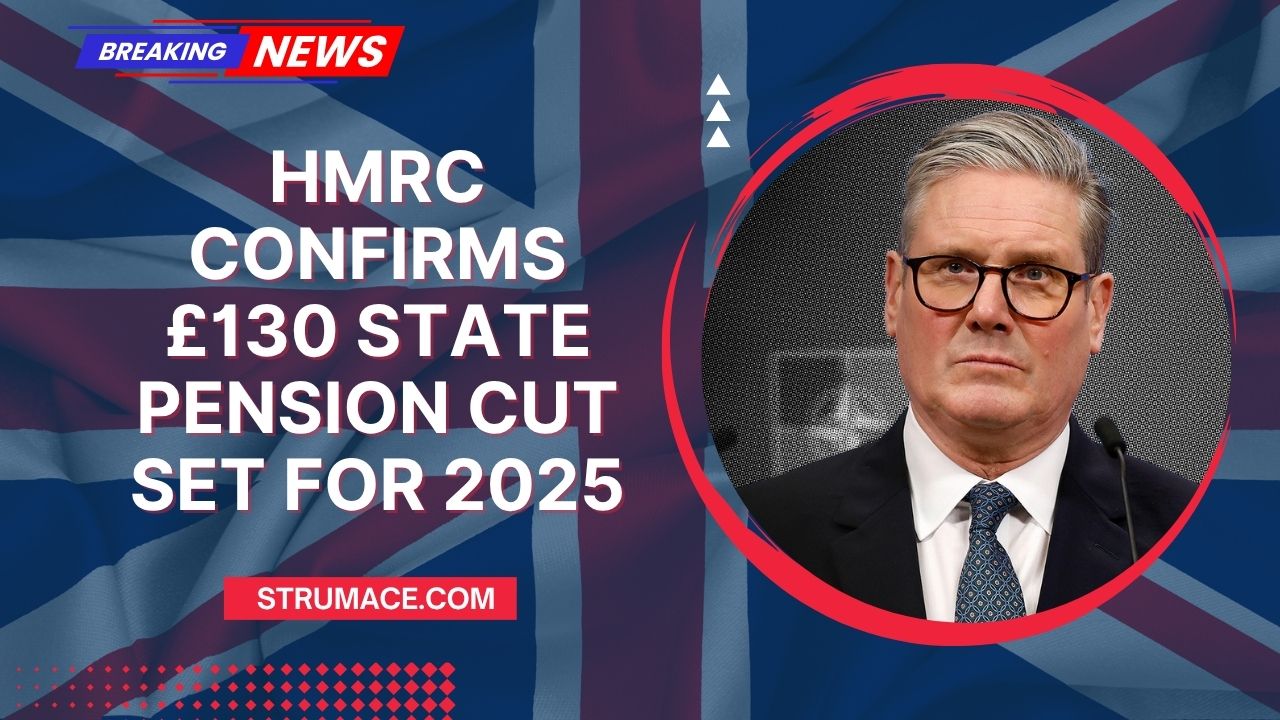Thousands of UK pensioners are seeing unexpected drops in their monthly income — up to £130 per month — not due to a State Pension cut, but because of new HMRC tax code adjustments.
These changes are part of HMRC’s effort to reclaim unpaid taxes on income exceeding the £12,570 personal allowance threshold.
Understanding the £130 State Pension Income Cut
The State Pension is considered taxable income, but tax isn’t deducted at source. Therefore, if a pensioner has other income streams — such as from a private pension, employment, or rental properties — HMRC adjusts their PAYE tax code to collect any owed tax.
These tax code modifications are often applied to sources where tax can be withheld, such as private pensions.
As a result, some pensioners have seen their monthly payments shrink by up to £130, depending on how much tax needs to be reclaimed.
Key Details of the Reduction
| Topic | Details |
|---|---|
| Monthly deduction | Up to £130/month |
| Reason | HMRC tax code revision |
| Who’s affected | Pensioners earning above £12,570 |
| State Pension taxation | Taxable, but not taxed at source |
| Check method | HMRC online tax account |
| Can it be prevented? | No, if tax is due, but it can be managed better |
Who Is Most at Risk?
Not every pensioner will be impacted, but the following groups are particularly vulnerable to PAYE tax code deductions:
- Pensioners receiving private or workplace pensions
- Those with additional income from rent or investments
- Recent State Pension claimants
- Individuals with outdated or incorrect tax codes
- Anyone whose total annual income exceeds £12,570
How the PAYE Tax Code Adjustment System Works
HMRC uses the PAYE system to automate tax collections for those who underpaid in previous years or experience income changes mid-year. Rather than issuing a lump-sum tax bill, the owed amount is spread over the remaining months through tax code changes.
Illustrative Scenarios
| Situation | Monthly Impact |
|---|---|
| £1,560 underpaid tax last year | £130 deducted monthly |
| Tax code updated mid-year | Deductions prorated over few months |
| Income exceeds allowance (£12,570) | More of income becomes taxable |
| New pensioner with part-time work | Tax estimate may be inaccurate |
| Outdated tax code | Higher chance of deduction |
Tax Treatment Based on Income Type
| Income Source | Tax Rules |
|---|---|
| State Pension | Taxable, no tax deducted at source |
| Private/Occupational Pension | Taxed under PAYE, subject to code adjustment |
| Part-Time or Full Employment | Taxed via PAYE or Self-Assessment |
| Rental Income | Must be declared via Self-Assessment |
| Investment Income | Taxed at source or reported via Self-Assessment |
How to Check If You’re Affected
To find out whether your income has been reduced due to HMRC’s tax code adjustment:
- Log into your HMRC Personal Tax Account
- Review your tax code and confirm which income sources it covers
- Examine your pension payslips or bank statements for any deductions
- Use HMRC’s tax calculator to estimate current tax liabilities
If discrepancies or unexpected deductions are noticed, contact HMRC directly for clarification or correction.
While the State Pension rate remains unchanged, many pensioners are experiencing a real drop in income due to tax code adjustments made by HMRC.
These deductions help recover underpaid tax from other income sources but can come as a surprise, especially if not regularly monitored. Understanding your tax code, tracking your income sources, and using HMRC tools can help you stay on top of these changes and avoid future shocks.
FAQs
Why is my State Pension not taxed at source like other income?
The State Pension is taxable but isn’t taxed when paid. Instead, HMRC collects the due tax through other income streams like private pensions or employment.
Can I dispute the £130 monthly deduction?
If you believe your tax code is incorrect or deductions are too high, you should contact HMRC. However, if tax is legitimately owed, the deduction will likely remain.
How often should I check my tax code?
You should review your tax code annually or after any major income change (e.g., starting work, retiring, or claiming a new pension) to avoid errors or surprises.
